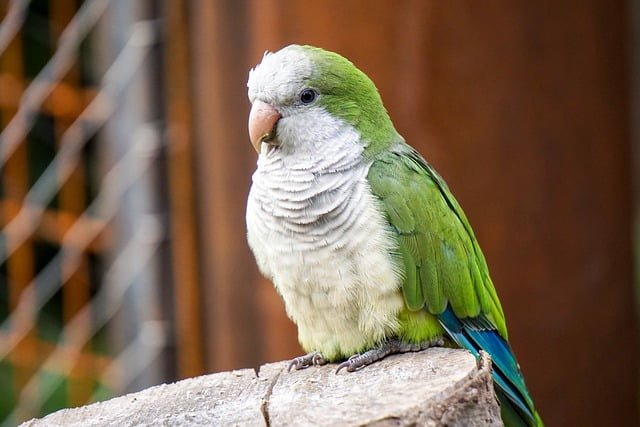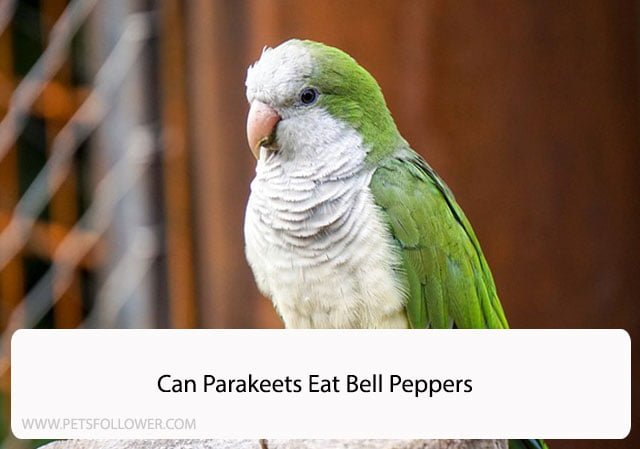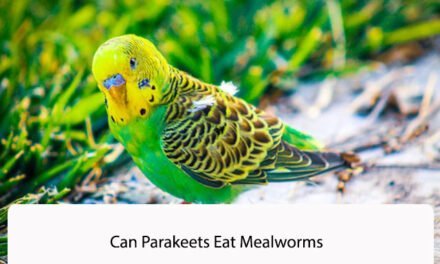Parakeets are known for their diverse and colorful diet, which includes fruits, vegetables, and seeds. However, not all human foods are safe for these birds to eat. One question that frequently arises among parakeet owners is whether or not their feathered friends can eat bell peppers.
The short answer is yes, parakeets can eat bell peppers. In fact, bell peppers are a great source of vitamins and minerals for these birds. Bell peppers are low in calories and high in vitamin C, which can boost the immune system and help prevent disease. They also contain vitamin A, which is important for maintaining healthy eyes and skin.
While bell peppers are safe for parakeets to eat, it’s important to remember that they should be given in moderation. Too much of any one food can upset a bird’s digestive system and lead to health problems. Additionally, it’s important to wash the bell peppers thoroughly before feeding them to your parakeet to remove any pesticides or other chemicals that may be present.

Understanding Parakeets’ Diet
Parakeets are known for their diverse diet that consists of seeds, fruits, and vegetables. As responsible pet owners, it is our duty to ensure that our feathered friends receive a balanced diet that meets their nutritional needs.
A healthy parakeet diet should include a variety of food items that provide essential nutrients such as carbohydrates, proteins, vitamins, and minerals. A diet that is high in fat or lacks essential nutrients can lead to health problems such as obesity, malnutrition, and weakened immune system.
When it comes to feeding parakeets, it is important to remember that they have a small digestive system and a high metabolism. This means that they require frequent meals throughout the day to maintain their energy levels and health.
Some of the food items that are safe for parakeets to eat include:
- Seeds (such as millet, canary grass, and flaxseed)
- Fruits (such as apples, bananas, and grapes)
- Vegetables (such as carrots, spinach, and bell peppers)
- Pellets (commercially available parakeet food)
It is important to note that not all fruits and vegetables are safe for parakeets to eat. For example, avocado, chocolate, and caffeine are toxic to parakeets and should be avoided.
In addition to providing a balanced diet, it is also important to ensure that your parakeet has access to fresh and clean water at all times. Water is essential for proper digestion and overall health.
By understanding the nutritional needs of parakeets and providing a balanced diet, we can ensure that our feathered friends live a healthy and happy life.
Can Parakeets Eat Bell Peppers
Bell peppers are a common vegetable that many people enjoy eating. If you’re a parakeet owner, you may be wondering if it’s safe to share this treat with your feathered friend. The good news is that bell peppers are safe for parakeets to eat, and they can even provide some nutritional benefits.
Bell peppers are low in calories and high in vitamin C, which can help support your parakeet’s immune system. They also contain vitamin A, which is important for maintaining healthy eyesight. Additionally, bell peppers are a good source of fiber, which can aid in digestion.
When feeding bell peppers to your parakeet, it’s important to prepare them properly. Wash the peppers thoroughly to remove any dirt or pesticides. Cut the peppers into small, bite-sized pieces that are easy for your parakeet to eat. You can also remove the seeds and stems, as they can be difficult for your parakeet to digest.
It’s important to remember that bell peppers should not be the only food in your parakeet’s diet. Parakeets require a balanced diet that includes a variety of fruits, vegetables, seeds, and pellets. Too much of any one food can lead to nutritional imbalances and health problems.
In conclusion, parakeets can eat bell peppers as part of a balanced diet. They provide nutritional benefits and can be a tasty treat for your feathered friend. Just remember to prepare them properly and feed them in moderation.

Health Benefits of Bell Peppers for Parakeets
Vitamin C
Bell peppers are an excellent source of Vitamin C, which is essential for maintaining the overall health of parakeets. Vitamin C helps to boost the immune system, which can help prevent illnesses and diseases. It also aids in the absorption of iron, which is important for maintaining healthy blood cells.
Antioxidants
Bell peppers are rich in antioxidants, which can help to protect parakeets from harmful free radicals. Antioxidants can help to prevent cellular damage, which can lead to a variety of health problems. Some of the antioxidants found in bell peppers include flavonoids, carotenoids, and Vitamin C.
Fiber
Bell peppers are a good source of fiber, which is important for maintaining a healthy digestive system. Fiber helps to regulate bowel movements, prevent constipation, and keep the digestive tract healthy. It also helps to keep parakeets feeling full and satisfied, which can prevent overeating and obesity.
In conclusion, bell peppers are a great addition to a parakeet’s diet due to their high content of Vitamin C, antioxidants, and fiber. However, it is important to remember that bell peppers should be given in moderation and should not be the sole source of nutrition for parakeets.
Potential Risks of Bell Peppers for Parakeets
Bell peppers are generally safe for parakeets to eat, but there are a few potential risks to be aware of.
Seeds
The seeds of bell peppers are not toxic to parakeets, but they can be a choking hazard. It is best to remove the seeds before feeding bell peppers to your parakeet.
Spiciness
Bell peppers are not spicy, but some varieties can be slightly hot. Parakeets may not be able to tolerate spicy foods, so it is important to test a small amount of bell pepper first to see how your bird reacts. If your parakeet shows signs of discomfort or distress, do not feed them bell peppers.
Overall, bell peppers can be a healthy addition to your parakeet’s diet, but it is important to be aware of potential risks and to introduce new foods slowly and in moderation.
How to Feed Bell Peppers to Parakeets
Preparation
Before feeding bell peppers to parakeets, it is important to properly prepare them. Follow these steps:
- Wash the bell peppers thoroughly to remove any dirt or pesticides.
- Cut the bell peppers into small pieces that are easy for your parakeet to eat.
- Remove the seeds and stem as they can be difficult for your parakeet to digest.
Portion Size
When feeding bell peppers to your parakeet, it is important to keep portion sizes in mind. Here are some guidelines to follow:
- Offer bell peppers as a treat and not a staple food.
- Limit the amount of bell peppers to 1-2 small pieces per day.
- Monitor your parakeet’s weight and adjust the portion size accordingly.
It is important to note that while bell peppers are safe for parakeets to eat, they should not make up the majority of their diet. A balanced diet for your parakeet should consist of a variety of fruits, vegetables, seeds, and pellets.
Alternatives to Bell Peppers for Parakeets
If your parakeet is not a fan of bell peppers, there are plenty of other fruits and vegetables that can be included in their diet. Here are some alternatives that are safe for parakeets to eat:
1. Carrots
Carrots are a great source of beta-carotene, which helps improve vision and boost the immune system. They are also low in calories and high in fiber, making them a healthy addition to your parakeet’s diet. Cut the carrots into small pieces to make them easier for your parakeet to eat.
2. Broccoli
Broccoli is a nutritious vegetable that is rich in vitamins and minerals. It is also a good source of fiber, which can help with digestion. Make sure to cut the broccoli into small pieces to prevent choking.
3. Spinach
Spinach is another nutritious vegetable that is safe for parakeets to eat. It is high in iron, which is important for healthy blood and energy levels. Make sure to wash the spinach thoroughly before feeding it to your parakeet.
4. Apples
Apples are a great source of vitamins and minerals, and they are also low in calories. Make sure to remove the seeds and core before feeding them to your parakeet.
5. Blueberries
Blueberries are packed with antioxidants, which can help boost the immune system and prevent disease. They are also low in calories and high in fiber. Make sure to wash the blueberries thoroughly before feeding them to your parakeet.
Remember to introduce new foods gradually and in small amounts to avoid digestive upset. Always consult with your veterinarian before making any changes to your parakeet’s diet.

Frequently Asked Questions
What human food can parakeets safely eat?
Parakeets can safely eat a variety of human foods, including fruits, vegetables, and grains. However, it’s important to remember that not all human foods are safe for birds, so it’s important to do your research before feeding them anything new.
What vegetables are safe for parakeets to eat?
There are many vegetables that are safe for parakeets to eat, including carrots, broccoli, spinach, and kale. It’s important to make sure that the vegetables are fresh and washed thoroughly before feeding them to your bird.
Can parakeets eat strawberries?
Yes, parakeets can eat strawberries in moderation. Strawberries are a good source of vitamin C and antioxidants, but they should be given as a treat and not as a regular part of your bird’s diet.
What are some foods that are safe for parakeets?
In addition to fruits and vegetables, parakeets can also eat grains, such as cooked rice and quinoa, and lean proteins, such as cooked chicken and eggs. It’s important to avoid giving your bird any processed or sugary foods.
Are bell peppers toxic to birds?
No, bell peppers are not toxic to birds. In fact, they are a great source of vitamin C and other nutrients. However, it’s important to remove the seeds and stems before feeding them to your bird.
What foods should be avoided when feeding parakeets?
There are several foods that should be avoided when feeding parakeets, including chocolate, avocado, caffeine, alcohol, and foods high in salt, sugar, or fat. These foods can be toxic to birds and can cause serious health problems.





